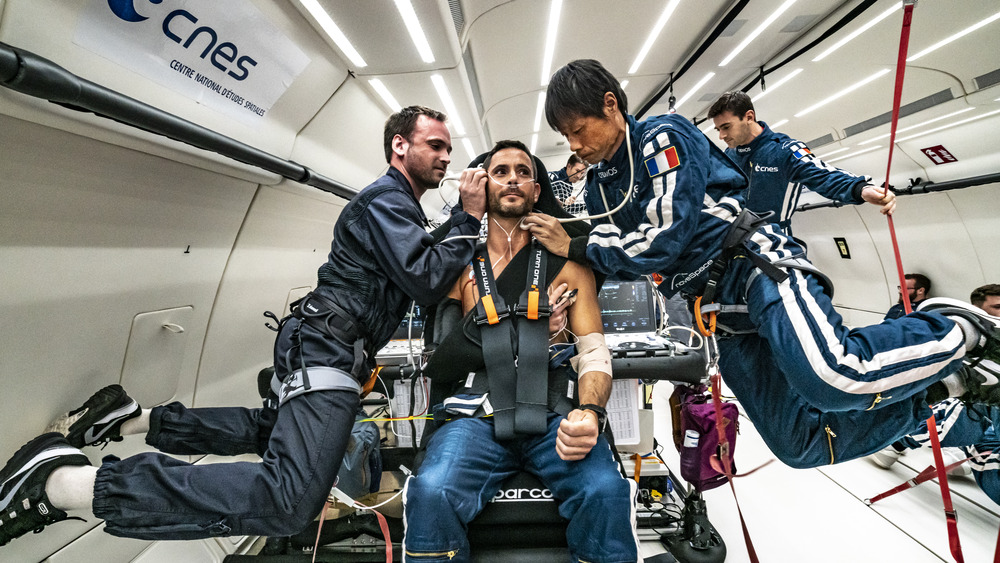Here's What Really Happens To Your Heart In Space
The more we learn about outer space, the more we learn about ourselves. Particularly, we know that even with all the ways living on Earth takes a toll on our bodies, life in space is even less kind.
Turns out, even though gravity is a leading cause of the obvious effects of aging, i.e., sagging skin and wrinkles, gravity is important to the way the heart functions. When the human body is immersed in space's microgravity, it has detrimental effects on the cardiovascular system.
According to NASA, "Microgravity affects the heart's ability to pump blood and provide oxygen to cells throughout the body, which can have serious health consequences."
There is something about long-term weightlessness that also shrinks the heart and causes atrophy, CNN reported, like the Grinch in reverse.
According to the journal Cardiology, a recent study found that the heart changes shape in microgravity, becoming more spherical. Even though the idea of a sphere-shaped heart totally messes up Valentine's Day marketing, the shape change itself isn't that big of a deal.
A senior author on that study, Benjamin D. Levine, MD, FACC, told Cardiology, "I'm not particularly concerned about changes in the sphericity of the heart. It's just a gravity effect that has no consequence. But it does seem that astronauts get AFib about a decade earlier than the population and this may be related to the atria getting bigger."
Space radiation can have negative effects on the heart
Besides heart shrinkage, changes in shape, and the possibility of developing atrial fibrillation earlier than most people, another effect space has on the heart is that it can cause astronauts to return home with stiffened carotid arteries.
According to NASA, the stiffening is "of the magnitude expected from 10 to 20 years of normal aging. Arterial stiffening in space and on Earth is often linked to an increased blood pressure and elevated risk for cardiovascular disease."
That doesn't sound good, and we're not even done. Space radiation can wreak havoc on the human heart. It even has a name — Radiation-induced cardiovascular disease.
According to a study published in Frontiers of Cardiovascular Medicine, the condition "is a well-known complication of radiation exposure."
While more study is needed, the authors of the paper wrote, "Research has shown that exposure to different types of particles found in space radiation can lead to the development of diverse cardiovascular disease via fibrotic myocardial remodeling, accelerated atherosclerosis and microvascular damage."
But for all the seemingly detrimental effects space can have on heart health, Dr. Benjamin Levine, a professor of internal medicine/cardiology at the University of Texas Southwestern Medical Center, told CNN, "The heart gets smaller and shrinks and atrophies, but it doesn't become weaker — it's just fine. If there's one thing that I've learned over 25 years of studying how the heart adapts to spaceflight, exercise training and high altitude, it's that it's a remarkably adaptive organ, and it responds to the demands that are placed on it."

